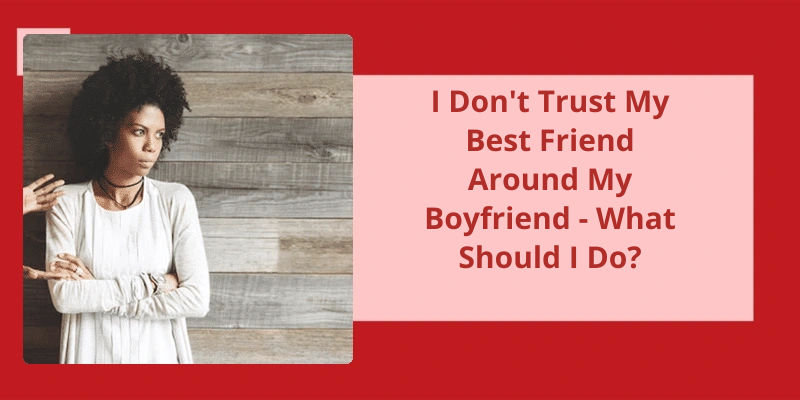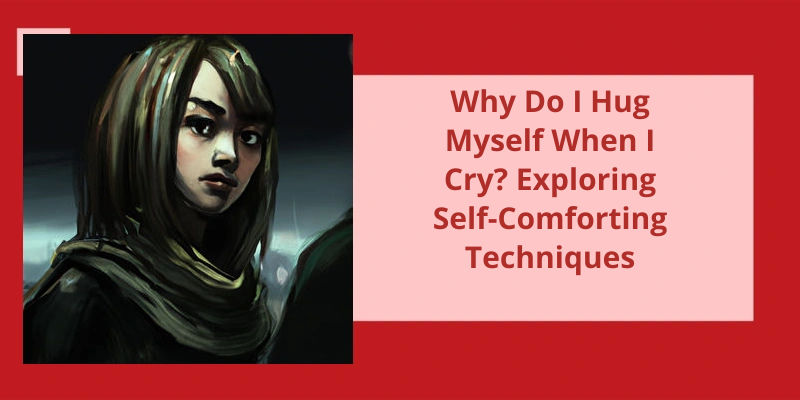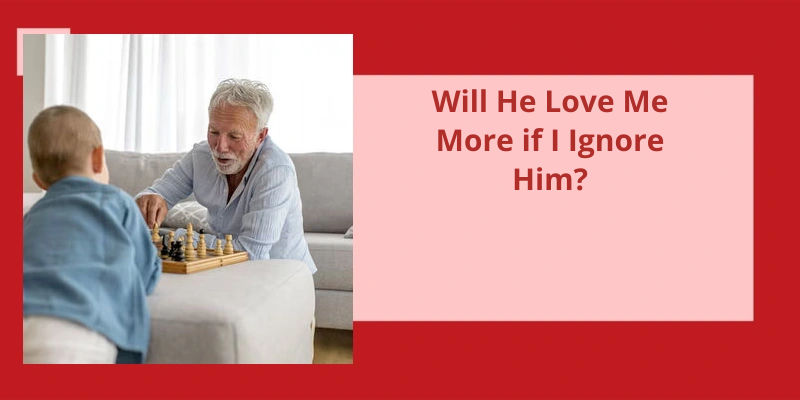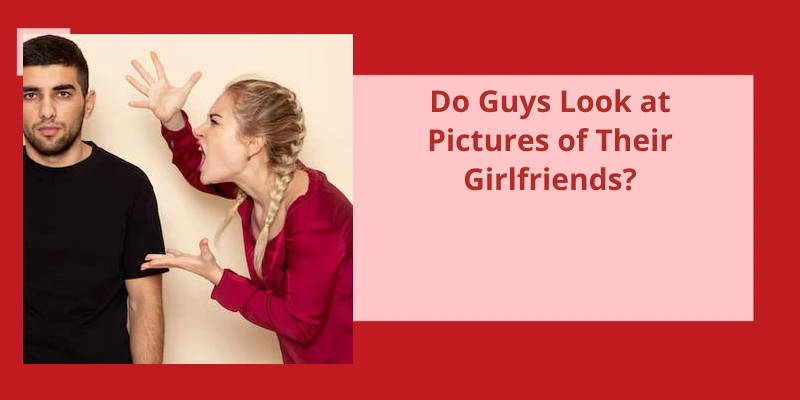The topic of trust and loyalty in relationships is a delicate one that can often lead to tense situations and conflicting emotions. When it comes to romantic relationships specifically, the stakes can become even higher, as the involvement of strong emotions such as love and desire can cause irrational or heightened reactions. One scenario that’s often faced by individuals is the feeling of distrust towards their best friend around their boyfriend or partner. This can stem from a variety of reasons, ranging from past experiences to present behaviors, and navigating these feelings can be challenging. It requires navigating the complex elements of emotional attachment, communication, and boundary-setting, all while trying to maintain healthy relationships with both parties involved.
Is It Normal to Trust Your Friends More Than Your Partner?
This phenomenon isn’t exclusive to women, however. Men also tend to confide in their friends and share intimate details that they may not share with their partners. This isn’t necessarily a sign of distrust in their partners, but rather a reflection of the different roles that friends and partners play in our lives. Friends are often our support system, our confidants, and our biggest cheerleaders. They’re the people we turn to when we need advice or a shoulder to cry on. Partners, on the other hand, play a different role. They’re our romantic partners, our lovers, and our companions. They’re the people we turn to for love and affection, for intimacy and connection.
For some people, the trust they’ve in their friends may exceed the trust they’ve in their partners. This can be due to a variety of factors, including a lack of emotional connection with their partner, a history of broken trust in past relationships, or simply a strong bond with their best friend that they don’t share with their partner. However, it’s important to remember that every relationship is unique and there’s no right or wrong way to develop trust.
Both friends and partners play important roles in our lives, and the trust we’ve in them can vary depending on the circumstances. However, it’s important to recognize that trust is a complex and ever-changing concept that requires effort and commitment from both parties. By staying open, honest, and communicative, we can build strong, lasting relationships with both our friends and our partners.
Who Is More Important Your Best Friend or Your Boyfriend?
The reason behind why your best friend is more important than a boyfriend is due to the nature of the relationship. A boyfriend, no matter how wonderful he may be, is someone you’ve known for a relatively short amount of time. A best friend, on the other hand, is someone you’ve likely known for years. This level of familiarity and understanding can’t be replicated in a romantic relationship, no matter how deep the love may be.
In addition, a best friend is someone who’ll always be there for you, no matter what. Sure, you may have arguments and disagreements, but at the end of the day, your best friend is someone who’ll support you through thick and thin. They’ve been there for you during your darkest moments, offering a listening ear and a shoulder to cry on. A boyfriend may be able to do this to some extent, but ultimately their role in your life is different.
Another key factor is that a best friend can offer advice and guidance on a more broad scale. They’ve likely seen you through a variety of different situations and can offer a more objective view on things than someone who’s emotionally invested in you. This isn’t to say that a boyfriend can’t be a source of advice, but it’s important to remember that they’re still learning about you and your life.
Furthermore, friendships are often more stable than romantic relationships. While breakups can devastate you for months or even years, the loss of a friend can be equally traumatic. However, the odds of losing a friend due to a misunderstanding or a fight are generally lower than in a relationship. This means that you can rely on your friendship lasting longer and being a steadier influence in your life.
Finally, your best friend is likely to be around long after your current boyfriend. While initial infatuation can be powerful, relationships often have a finite lifespan. Whether it’s a breakup or simply growing apart, the odds are that your current boyfriend won’t be a permanent fixture in your life.
The value of a best friend can’t be overstated. They offer support, advice, and stability that can’t be replicated in a romantic relationship. While love is important, it’s your friendships that will truly stand the test of time. So cherish your best friend and make sure they know how much they mean to you.
How to Identify Toxic Friendships and Relationships and When to Let Go
- Constant negativity or criticism towards you
- Manipulation or controlling behavior
- Betrayal or lying
- Feeling drained or emotionally exhausted after spending time with them
- Unwillingness to listen or communicate effectively
- Disrespect towards your boundaries or values
- Unsupportive or unsympathetic attitude towards your goals or struggles
- Inability to accept responsibility for their actions or apologize when necessary
- Consistently canceling plans or making excuses for not following through on commitments
- Feeling like you’re giving more than you’re receiving in the friendship or relationship
It’s essential to address and resolve these trust issues before they can negatively impact your friendship. So, let’s take a closer look at why trust issues can develop among friends and what you can do to overcome them.
Is It Normal to Have Trust Issues With Friends?
It can be difficult to make friends, but it can be even harder to trust them. Trust issues can stem from a variety of reasons, including past experiences, personal insecurities, or even anxiety.
Finding a trusted confidant can be a real challenge. People come and go, and while some may seem like genuine friends, they may not have your best interests at heart. These experiences can be particularly damaging and make it even more challenging to trust future friendships. Furthermore, if youve experienced betrayal from someone you considered a close friend, it’s only natural to have doubts and trust issues with future friends.
Trust can take time to develop. When forming a new friendship, it’s essential to start slowly, gradually building trust by opening up and sharing personal experiences. Over time, youll start to see if your friend is someone you can truly trust. It’s important to remember, however, that trust isnt a one-time thing; it’s an ongoing process that requires consistent effort from both parties.
If youre struggling with trust issues with your current friends, it might be helpful to discuss your feelings with them. If your friends are genuine and supportive, theyll likely want to understand your perspective and work with you to repair your trust. Alternatively, if they seem dismissive or not interested in listening to your concerns, it might be time to reassess your friendship.
When building trust and preserving a deep friendship, there are a number of factors to keep in mind. Honesty and loyalty are critical components of any strong bond, but they’re just the beginning. Consideration, active listening, and supportive gestures are all crucial to maintaining a relationship that’s built to last. In the next section, we will explore these concepts in further detail and offer tips for fostering deep, meaningful connections with those closest to us.
How Can I Trust My Best Friend?
Trust is fundamental in any relationship, and this is particularly true of friendships. Having a best friend signifies a special bond that’s built on honesty, transparency, and mutual respect. However, over time, trust can erode, and it’s crucial to understand how to maintain or rebuild it. One key way to do so is by remaining honest with your best friend. Sharing the truth, even if it may be uncomfortable or challenging, shows your friend that you respect them enough not to deceive them. This, in turn, will build a foundation of trust that can withstand tough times.
Friends confide in each other, and it’s important that whatever they share remains confidential. If your best friend shares something with you, a good rule of thumb is to assume it isn’t meant for anyone elses ears. When you keep a secret, you show your friend that you respect their privacy and are someone they can trust.
Remaining considerate is another vital aspect of building trust in a friendship. Being aware of your friends feelings and emotions and showing empathy when they share their concerns demonstrate that you care about them. When your best friend feels comfortable enough to open up to you, it’s essential to listen actively. This means focusing on what they’re saying and not interrupting or judging them. Engage with them by asking questions, and show that you’re genuinely interested in their thoughts and feelings.
Making time for your best friend is also crucial. This may involve prioritizing their schedule when planning social activities, responding to messages promptly, or just being present when they need you. Quality time together is an excellent way to cultivate trust and build stronger friendships. Encouraging your best friend and offering help when they’re facing challenges is another surefire way to strengthen your bond. When you show them that you’ve their back and support them, they know they can trust you to be there for them.
Sharing things is also an essential factor in developing trust in a friendship. While everyone has boundaries, sharing your experiences and thoughts with your best friend can help build a deeper connection between the two of you. Sometimes just sharing a laugh or telling a story can provide a much-needed moment of levity, which can go a long way in strengthening the trust between you.
Source: Can you trust your best friend?..
In some cases, these trust issues aren’t just limited to romantic relationships, in fact, sometimes they can affect our friendships too. It can be hard when you don’t feel like you can trust a close friend, but it’s not uncommon to experience this. In this article, we’ll explore some of the reasons you might find it difficult to trust your best friend.
Why Am I Not Able to Trust My Best Friend?
When we let someone get close to us, we’re vulnerable. We expose our true selves and trust that the other person will support us, love us, and respect us. But what happens when this trust is broken? When someone we trusted betrays us, it leaves us feeling hurt, angry, and unsure of who to trust again. This painful experience often leads to trust issues, especially in our closest relationships, like best friends.
It isn’t easy to admit that we’re struggling to trust our best friend. After all, these are people we’ve shared our secrets with, confided in, and spent countless hours with. But trust issues can develop slowly over time, and it may take a while for us to recognize the signs. We may start to second-guess everything they say or do, wonder if they’re being honest with us, or feel like they’re keeping something from us.
Trust issues with friends can be debilitating. We want to believe that our friends have our best interests at heart, but sometimes past wounds get in the way. It’s important to recognize that trust issues aren’t just about the other person, but also about us. We may be carrying around pain and hurt from past relationships, which can interfere with our ability to trust others. It takes courage to confront these feelings and work through them, but it’s possible.
If we struggle with self-doubt or have a fear of abandonment, it can be hard to trust anyone, even our closest friends. We may be constantly seeking reassurance or validation, which can put a strain on our friendships. It’s important to understand that our friends aren’t responsible for our emotional well-being, and we need to find ways to work through our own issues.
If we’re struggling to trust our best friend, it can be helpful to talk about our feelings with them. It’s important to approach the conversation with honesty and vulnerability, letting them know how we’re feeling and why. We can also work on building trust in small ways, by setting boundaries, following through on promises, and being reliable. It takes time to rebuild trust, but with patience and effort, it’s possible to repair even the most damaged relationships.
Through introspection, open communication, and a willingness to work through our own issues, we can overcome our trust issues and build stronger, more fulfilling friendships. It takes courage to let ourselves be vulnerable, but only when we take this risk can we truly form meaningful connections with those around us.
How to Rebuild Trust in a Friendship After a Betrayal
- Accept responsibility for your actions that led to the betrayal
- Apologize sincerely and make amends for the hurt caused
- Be patient with your friend and respect their boundaries
- Communicate openly and honestly about your feelings
- Listen actively to your friend’s concerns and needs
- Offer reassurance and show through your actions that you can be trusted again
- Be consistent in your efforts to rebuild the relationship
- Seek counseling or mediation if necessary
Conclusion
In conclusion, trusting someone can be difficult, especially when it comes to matters of the heart. While it may be challenging to navigate the dynamics between your best friend and your significant other, it’s important to listen to your intuition and communicate openly and honestly with both parties. If you feel uneasy or suspect any dishonesty, it may be helpful to address your concerns directly and set clear boundaries for all parties involved. Ultimately, the most important thing is to prioritize your own well-being and surround yourself with individuals who respect and support you.






